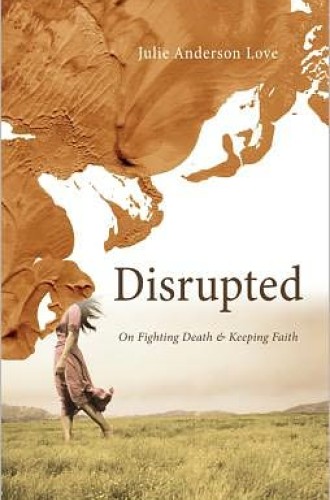Disrupted, by Julie Anderson Love
On her first of many stays in the hospital for treatment of an aggressively malignant pineal blastoma, Julie Love returned to her room to find an eight-foot banner that read "Hope And Prosperity." Her head was bandaged from the surgery that had revealed the alarming extent of a sprawling tumor that had "a death grip" on her brain, branching into areas the neurosurgeon wouldn't risk entering. Ironic as the banner might seem in her situation, it had particular significance: a friend had pointed out that the root word of prosperity is hope—sperare—suggesting that biblical promises of prosperity perhaps have more to do with the gift of hope than with material blessing. The same friend had also come upon the Latin phrase dum spiro spero—"while I breathe, I hope"—and had linked those meanings to a life guided by the Holy Spirit: pro spiritus.
As it turned out, the months that followed her bleak diagnosis in 1994, filled with cycles of pain, nausea, disorientation, dizziness, radiation, chemotherapy and uncertainty, were also a time of deep learning about hope. Love, a 29-year-old associate pastor in a Portland church, whose husband was finishing his dissertation and embarking on his own career in theology, learned quickly that hope has nothing to do with passivity. She was, as she described it later, "the patient from hell." She asked questions until she got answers. She argued with the neurosurgeon and with God. On one of the monthly three-day hospital stays that were becoming routine, she seized the evening hours before nausea set in to sneak out for beer and pizza with a few willing collaborators. She had every intention of surviving but no time for the kind of compliance that involved forfeiting her sense of how to do that.
The story she tells in the ensuing chapters takes full account of the difficulties, discouragements and minor irritations, as well as the surges of faith, gratitude and insight, and the continuous love she experienced over her months of treatment. The narrative is fast-paced, episodic, lively, quirky and colloquial, giving readers a startling sense of the sort of piety that develops in the lively questioning mind of a youthful woman determined to believe only in a God who is willing to meet her in the dark nights and hold her while she wrestles.





